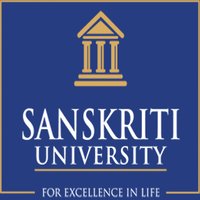BITSAT 2025
Institute of Eminence (IOE) by Govt. of India | Merit Based Scholarships | Ranked #20 by NIRF | Last Date: 18th Apr'25 | Apply Now
M.Sc Ph.D is a three to six years-long dual degree programme that combines MSc and P.hD. This integrated course rewards a student with a double degree. A M.Sc. is a postgraduate degree in science discipline. Candidates who have completed a B.Sc. are eligible for enrolling in M.Sc. While a PhD is a doctoral level research degree programme. Candidates who have completed 10+2+3+2 or 10+2+4 level course are eligible for enrolling in the Ph.D. course. The multi-disciplinary curriculum covers the core and elective course modules. M.Sc. Ph.D integrated course is designed to fulfil the requirements of a modern researcher of familiarity with the experimental and theoretical fields.
M.Sc. PhD stands for Master of Science- Doctor of Philosophy. It is an integrated programme designed by combining postgraduate degree M.Sc. and doctoral degree Ph.D. It involves advanced courses, foundation courses, and research work. Students are rewarded with M.Sc and Ph.D degrees on completion of the one-degree program.
This M.Sc. Ph.D dual degree program consists of two semesters, and for the first two years in each, students are dedicated to pursuing some small research projects. They are given a choice to select their guides and laboratories during this period. The next 4.5 to 5 years of the candidate's educational journey revolves around research. M.Sc Ph.D integrated course is ideal as it spares additional years for those students who pursue both M.Sc and Ph.D separately.
Particulars | Details |
Name of Course | Master in Science + Doctoral Program |
Course Level | Masters Doctorate level |
Course Duration | Three to Six Years. |
Eligibility | |
Admission and Entrance Exams | CUET PG |
Top Colleges |
|
Similar Specifications |
M.Sc.-Ph.D dual degree program fee structure varies significantly across government and private-run institutions. The fee structure at public institutions fluctuates between Rs. 60,000 to Rs. 2.38 Lakhs per academic year. The fee structure at private institutions fluctuates between Rs. 2.60 Lakh to Rs. 11.20 Lakh per academic year.
On average, top institutions like IIT-Bombay charges Rs. 50,000 per academic year, IIT- Kanpur charges Rs. Thirty-six thousand per academic year, and IIT- Kharagpur charges Rs. 12,000 per academic year. Other than the tuition fee, these charges often include the library fees, hostel charges, campus development charges, museum/ art visits, and incidentals. Public colleges typically charge a lower fee.
It is an integrated course of Master of Science with a Doctorate of Philosophy ideal for students with scientific vigour for theoretical knowledge and research.
Depending on the choice or interest, students can choose a specialisation that edges their research-oriented skills and aids them in constructing a career in this field. M.Sc Ph.D integrated course is an ideal programme for students with an inclination towards advanced research in fundamental sciences.
The eligibility criterion for the M.Sc Ph.D integrated degree is similar to various integrated programs in other disciplines. The following candidates are eligible for an M.sc Ph.D course -
Eligibility Criteria
Additional Criteria Requirements
The admission procedure for M.Sc. Ph.D. dual degree program consists of a written test - An entrance examination. Candidates need to qualify in the written entrance test. Qualified students will be called for final selection. Qualified students will have to complete a six-year course. Upon successful completion, students can successfully start with their course program.
Aspirants must appear for an entrance examination to get admission into M.Sc. PhD integrated courses there are various institutions-based entrance examinations for the M.Sc. PhD dual degree program. However, the top four entrance examinations are as follows:
Admissions to M.Sc. PhD programmes are provided on the basis of candidates' performance in the entrance examination or merit of previously passing examinations. Several institutions conduct their own entrance examination to provide admissions while the rest accept the scores of national and state-level entrance examinations. We have provided below details of major M.Sc. Ph.D. entrance examinations.
Exam | Full Form | Conducting Body | Application |
|---|---|---|---|
Common University Entrance Test (PG) | National Testing Agency (NTA) |
Cut off is the minimum requirement of percentage, marks or scores acquired by candidates in the previously passing examination or entrance examination. Cut-off is released every year by colleges to provide admissions. Those who secure more scores or higher rank than cut off or equivalent to it are eligible for further participation in the admission process and get themselves enrolled in the respective course and college.
The syllabus of integrated M.Sc. Ph.D integrated course may vary from college to college. After completion of a B.Sc. in any specialisation relevant to physics, chemistry, mathematics or biology, candidates can enrol in M.Sc. Ph.D. programme. We have provided below the syllabus of integrated M.Sc. Ph.D. depending on specialisations.
Syllabus for Semesters 1 and 2
Linear Algebra | Probability and Statistics |
Real Analysis | Computer Programming and Data Structures |
Discrete Mathematics | Computer Programming Lab |
Algebra | Ordinary Differential Equations |
Complex Analysis | Numerical Analysis |
Topology | Numerical Analysis Lab |
Syllabus for Semesters 3 and 4
Functional Analysis | Optimization Techniques Lab |
Continuum Mechanics | Elective-I |
Optimization Techniques | Elective-II |
Measure Theory and Integration | Elective-IV/ Research Review Paper |
Partial Differential Equations | Project Part II |
Elective-III |
Electives
Electives 1 and 3 | Number Theory, Advanced Matrix Theory,Numerical Linear Algebra, Lie Groups and Lie Algebra, Mathematical Logic, Algebraic Topology, Differential Geometry, Fluid Dynamics, Functions of Several Variables |
Electives 2 and 4 | Numerical Solution of Ordinary and Partial Differential Equations, Non-Negative Matrix Theory,Advanced Complex Analysis,Fractals, Computational Topology, Integral Equations and Variational Methods, Soft Computing, Neural Network, Queuing Theory in Computer Science, Queueing, Inventory and Reliability,Time Series Analysis and Forecasting, Mathematical Theory of Elasticity, Theory of groups and its application to physical problems, Computational Fluid Dynamics,Algebraic Graph Theory, Complex Dynamics, Ergodic Theory and Dynamical System, Abstract Harmonic Analysis,Fourier Analysis,Nonlinear Functional Analysis,Finite Element Methods, Advanced Techniques in Operation Research, Convex Analysis and Optimization, Stochastic Processes Simulation, Mathematical Theory of Control, Mathematical Biology |
Aspirants may check M.Sc. Ph.D. Chemistry syllabus provided below. The M.Sc. Ph.D. syllabus may vary from college to college. The M.Sc. Ph.D. syllabus combines the major subjects of both the course M.Sc. and Ph.D.
Syllabus for Semesters 1 and 2
Introduction to Quantum Chemistry | Organic Chemistry Laboratory |
Inorganic Chemistry–Structure, Principle and Reactivity | Inorganic Chemistry Laboratory |
Concept of Organic Synthesis | Seminar-I |
Mathematics for Chemists | |
Thermodynamics and Chemical Equilibrium | Computational Methods and Applications |
Principles of Organometallic and Bio-inorganic Chemistry | Physical Chemistry Laboratory |
Advanced Organic Chemistry | Advanced Instrumentation Laboratory |
Group Theory and Spectroscopy | - |
Syllabus for Semesters 3 and 4
Analytical Chemistry | Elective 4 |
Elective 1 | Research/review paper |
Elective 2 | Project 2 |
Elective 3 | - |
Seminar 1 | - |
Project 1 | - |
List of Electives for Chemistry
Electives 1 - 5 | Biochemistry, Solid State Chemistry, Chemical Kinetics and Surface Chemistry, Advanced Polymer Chemistry, Metal Complexes in Catalysis CY6005, Physical Methods in Inorganic Chemistry, Advanced Inorganic Chemistry : Reactions, Kinetics and Mechanism, Advanced Main Group Chemistry, Inorganic Photochemistry, Chemistry of Materials, Advanced Bio-inorganic Chemistry, Organic Reagents and Reactions, Methods in Organic Synthesis, Photochemistry and Pericyclic Reactions, Statistical Mechanics for Chemists, Chemical Biology of Receptors, Application of Fluorescence Spectroscopy in Chemistry and Biology, Theory of Conductance and Diffusion, Structure and Function of Biomolecules, Receptor Pharmacology and Drug Discovery, Biophysical Chemistry, Chemical Bonding and Reactivity, Advanced Quantum Chemistry, Advanced Magnetic Materials, Design and Application of Nanomaterials, Electroanalysis and Sensors, Catalyst Design and Function, Organic Spectroscopy, Chemistry of Natural Products, Chemistry of Pharmaceutics, Advanced Heterocyclic Chemistry, Organometallic strategies in Organic Synthesis, Special Topics in Polymer & Composites, Advanced Chemistry of Carbohydrates, Nucleosides and Nucleotides, Advanced Topics in Organic Chemistry, Chemo and Bio Informatics, Molecular recognition and Supramolecular Chemistry |
If you are willing to enroll in the M.Sc. Ph.D. integrated course with the specialisation in Physics. Then, you may check the syllabus provided below. It could vary from college to college. We have listed the majority of M.Sc. Ph.D. dual degree program in Physics subjects in the syllabus provided here.
Syllabus for Semesters 1 and 2
Classical Mechanics | Electronics |
Mathematical Physics | Introduction to Computational Methods |
Quantum Mechanics I | Physics Laboratory I |
Electrodynamics I | Quantum Mechanics II |
Statistical Mechanics | Electrodynamics II |
Atomic & Molecular Physics | Physics Laboratory II |
Optics and Photonics | Seminar I |
Syllabus for Semesters 3 and 4
Nuclear and Particle Physics | Project I |
Condensed Matter Physics | Seminar II |
Elective I | Project II |
Elective II | Elective III |
Elective IV/Research Review Paper | - |
List of Electives for Physics
List of Electives 1 - 4 | Physics and Technology of Lasers, Applied Photonics Technology, Non Equilibrium Phenomena in Physics, Advanced Statistical Physics, Magnetism in Materials, General Relativity and Cosmology, Quantum Field Theory, Nanostructure and Quantum Devices, Particle Physics, Methods in Experimental Nuclear and Particle Physics, SemiConductor Physics, Accelerator based physics of solids, Radiation detection and measurement, Biophysics, Computational Methods and Applications |
There are numerous M.Sc. Ph.D. specialisations. The academic fee may vary depending on the specialisations offered in the MSc. Ph.D. Individuals may opt for a M.Sc. Ph.D. in any relevant specialisation after successful completion of B.Sc. We have listed below the major ones:
After receiving M.Sc. Ph.D dual Degree students have a plethora of options to choose that caters their education. In addition to campus placements, students are offered the roles as Research Scientist, Senior Research Scientist, or Professor at reputed institutions of their choice. Institutions often offer full-employment right after they complete their internship with the firm.
M.Sc.-Ph.D Degree offers students to experience innovative learning with outstanding knowledge. M.Sc.-Ph.D Degree graduates are educated in sharing techniques and practical execution of ideas at a more significant level. As mentioned earlier, M.Sc.-Ph.D Degree graduates can opt for their dream career in pots such as ONGC (Chemist Post), NTPC (Chemist), IOCL, BPCL, and more.
M.Sc.-Ph.D Degree graduates are eligible to apply for the UPSC Geo-Scientist post for the Geological Survey Department. The job openings at the Geological Survey Department for scientist posts are available in the departments like ISRO, BARC, DRDO, and some more. For foreign universities, examinations like TOEFL and GRE are compulsory.
M.Sc.-Ph.D Degree graduates have career scope in famous private firms such as IOCL inclusive of Japanese and German universities, Asain Paints, CIPLA, and ONGC. Several other companies such as Walmart, Fuzzy Logics, Goldman Sachs, Amazon, and Dunia Finance offer a pay package of Rs. 20 Lacs per annum to M.Sc.-Ph.D graduates.
M.Sc.-Ph.D Degree graduates hold a massive career scope in government sectors as follows:
Research or Scientists:
The candidates must qualify the CSIR NET Exam to get the Scientist or Researcher Position in any of the below-mentioned institutions.
Officer Jobs Profiles
Career prospects for M.Sc.-Ph.D Degree graduates in India’s prestigious Government Organisations are:
Assistant Professors
Career prospects for M.Sc.-Ph.D Degree graduates as Assistant Professors at India’s Top Most Universities. Qualified candidates can apply for the Direct Recruitment process for the job profiles Assistant Professors or Lecturers in any reputed Indian University. However, the pay package depends on the candidate's skills and academic background. Candidates are hired on higher salary packages. Candidates need to qualify the UGC NET Exam to deem eligible to apply for the Lectureship Jobs in any reputed Indian University.
Railway Officer
There are various employment posts for qualified M.Sc.-Ph.D Degree graduates in Indian Railways. Candidates can opt to employ in the following positions:
Other Government Organisations
Below is a list of a few government organisations that offer other various platforms for M.Sc.-Ph.D Degree graduates such as Universities, Ministries, and Banks.
Salary Prospects
Job Profile | Average Starting Salary (per year) |
Research Scientist | Rs. 606,782 Lakhs per annum |
Professor, Postsecondary or Higher Education | Rs. 1,020,000 Lakhs per annum |
Clinical Psychologist | Rs. 1,020,000 Lakhs per annum |
Assistant Professor, Postsecondary / Higher Education | Rs. 660,000 Lakhs per annum |
There are numerous universities that offer various academic courses in disciplines of science. But, there are only a few colleges that offer M.Sc. Ph.D. integrated programme. We have listed below such top private M.Sc. Ph.D. colleges in India.
M.Sc.-Ph.D Degree program is a popular integrated course program across government and private-run institutions. Given below are a few public and private institutions that offer M.Sc.-Ph.D Integrated Degree programs. We have listed below top government M.Sc. Ph.D. colleges that offer this course.
There are plenty of M.Sc. colleges in India. An M.Sc. can be pursued after successful completion of B.Sc. The admission process, eligibility criteria and fee structure of M.Sc. course may vary college to college.
PhD is a doctoral degree programme. It is usually offered with a duration of five to seven year. Candidates who successfully complete PhD may conduct their own independent research. They get opportunities in the academic sector as professor, lecturer or researcher in universities and colleges. Aspirants may check top PhD colleges located in various states with the help of table provided below.
The primary difference that distinguishes between a ‘dual-degree program’ and that of joint M.Sc-Ph.D is that students cannot leave without completing his/her doctorate while pursuing a Joint M.Sc-Ph.D degree course. However, the former course programme gives students the option to move out with a Master's degree if they have no interest in studying further.
The course duration for the M.Sc-Ph.D course programme is between three to seven years.
To pursue M.Sc-Ph.D course programme, candidates should meet the following eligibility criteria:
An aggregate of 55 per cent to 60 per cent and above in B.Sc with first-class specifications in high and higher school ( 10 and 10+2)
Final year graduation students are eligible to apply.
A few of the entrance examinations for students to prepare for the MSc-PhD course are- JEE Advanced, AP EAMCET, BITSAT, CUSAT CAT, Symbiosis Entrance Test, JCECE, and IPU CET.
Graduates from this field have a great scope in both private and government organisations. M.Sc.-Ph.D Degree graduates can opt for their dream career in pots such as ONGC (Chemist Post), NTPC (Chemist), IOCL, BPCL, and more.
Here is a fees structure for MSc in Biotech, with India’s top tier Colleges.
Average Fees:
Fees in Government Colleges:
Fees in Private Colleges:
Other Factors Affecting Fees:
You can check the desired college fees structure through their official website or by visiting the admission office.
Hope it helps !
Colleges in India that offer an M.Sc. in Nuclear Medicine or related postgraduate degrees in Nuclear Medicine Technology.
Top Colleges Offering M.Sc. Nuclear Medicine/Technology:
Important Considerations:
Recommendation:
You should visit the official website of your desired College or you can directly contact the admission office for further details.
Hope this helps !
Hello there,
Yes, IISc Bangalore offers admission to its
4-year B.Sc. (Research)
program through the
IISER Aptitude Test (IAT)
, but
not
a direct 5-year B.Sc.-M.Sc. integrated course via IAT.
Key Points:
Program Offered
: 4-year B.Sc. (Research) with option to extend for 1-year M.Sc.
Admission via IAT
: Apply for IAT and also separately on
IISc admission portal
.
Course Structure
: First 3 semesters - common subjects, later specialization and research projects.
Eligibility for M.Sc. Extension : Based on academic performance during B.Sc.
Note
: IISc application opens from May 1 to June 6, 2025.
I hope this answer helps you. If you have more queries, then feel free to share your questions with us, we will be happy to assist you.
Thank you, and I wish you all the best in your bright future.
Hi navitha
In Kharar, Punjab, MSc students typically have hostel options at Panjab University and Chandigarh University. These hostels offer various room types, with fees ranging from Rs. 106,800 to Rs. 168,000 per annum for non-AC rooms and Rs. 1746 to Rs. 2880 for AC rooms.
Thanks.

MSc Finance and MSc International Management Admissions 2025 Now Open | Ranked Among the Top 100 Universities in the World by QS World University Rankings 2025 | Last Date: 28th Apr'25

100+ Industry collaborations | 10+ Years of legacy

Best innovation and research-driven university of Uttar Pradesh
Approved by UGC | Robust Placement Assistance
NAAC A Grade | Trans-Disciplinary Approach | Global Diversity
MAHE Ranked No. 1 Private University in India by QS World | #4 in India by NIRF 2024